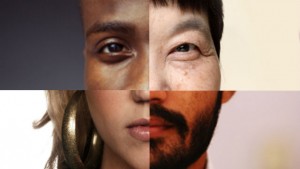Home » Commentary » Opinion » Identity politics and populism
· Ideas@TheCentre

 An online newspaper marked the first sitting of the federal parliament by encouraging readers to enter some basic personal information into a search engine.
An online newspaper marked the first sitting of the federal parliament by encouraging readers to enter some basic personal information into a search engine.
The results told you how well you were represented in parliament — based on the number of MPs and senators who reflected your age, gender, sexual preferences, education, ethnic and religious details.
This is an insight into what passes for democracy in the age of identity politics: only those with ‘lived experience’ are seen as able to legitimately represent the best interests of identity group x, y, or z.
This was also the theme of some of the coverage of some maiden speeches. The gist was that finally minority groups were better represented in parliament due to the identities of some of the new parliamentarians.
This isn’t a bad thing, of course. Minorities standing for parliament and getting elected on their merits is a great victory for and measure of the depth of community tolerance and acceptance.
But at a time when Establishment politics is facing a crisis of legitimacy in many western countries, I’m not sure that political/media class focusing on identity politics is particularly helpful. I suspect it helps widen the gulf between elites and the masses.
The subtext behind the obsession with ‘respect’ for difference is that ordinary people are bigoted and need to be lectured to by their ‘betters’ and have ‘diversity’ rammed down their throat for their own good.
The default cultural attitude of many ‘insiders’ encourages ‘outsiders’ to turn away and vote for the kind of populists who love to take cheap — if often unerringly accurate — pot-shots at ‘out of touch’ politicians.
Identity politics and populism